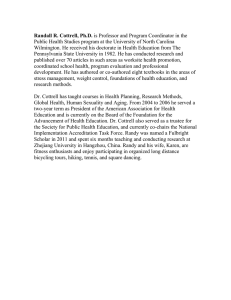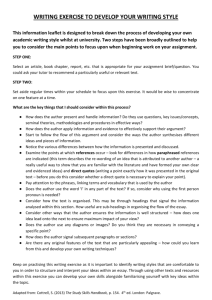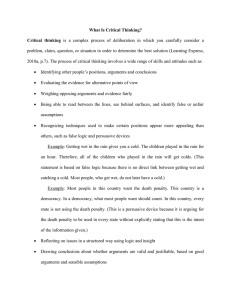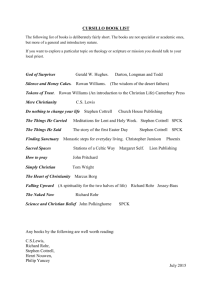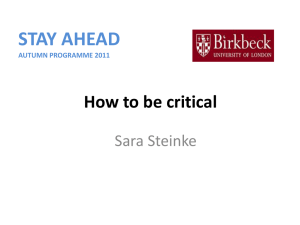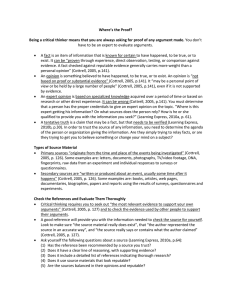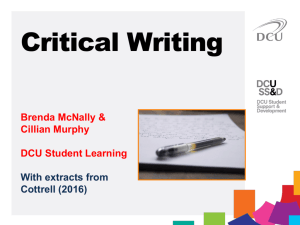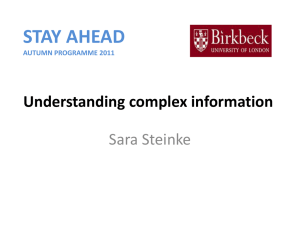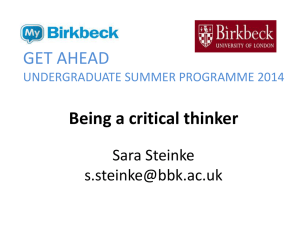Knowing the Barriers to Critical Thinking to Overcome Them
advertisement
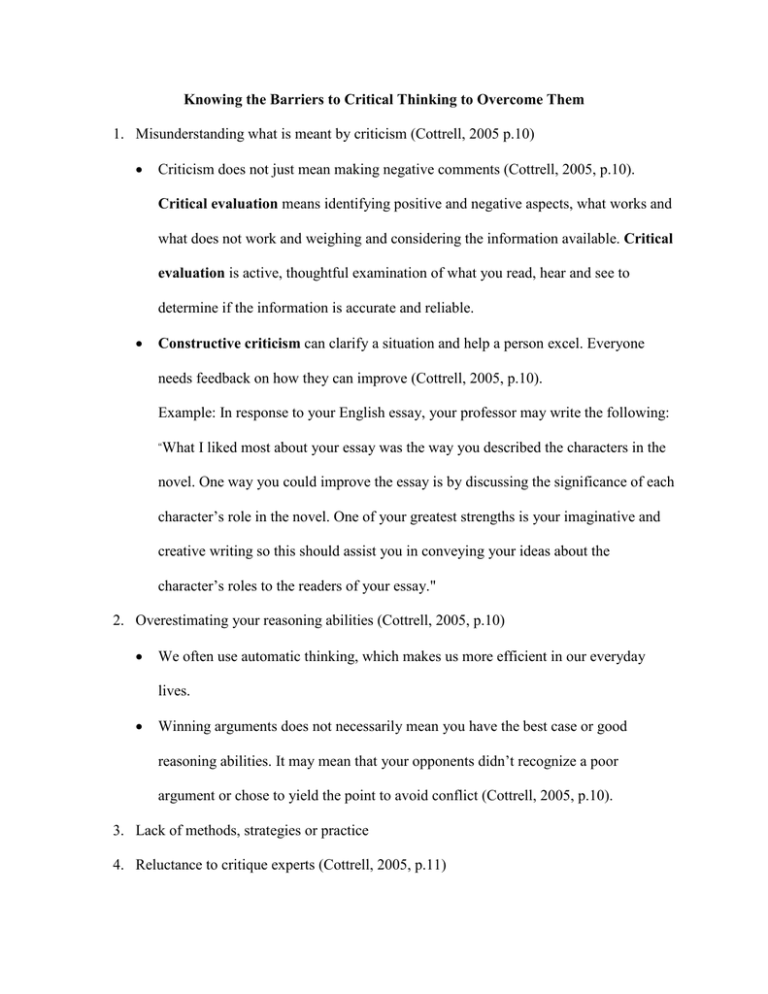
Knowing the Barriers to Critical Thinking to Overcome Them 1. Misunderstanding what is meant by criticism (Cottrell, 2005 p.10) • Criticism does not just mean making negative comments (Cottrell, 2005, p.10). Critical evaluation means identifying positive and negative aspects, what works and what does not work and weighing and considering the information available. Critical evaluation is active, thoughtful examination of what you read, hear and see to determine if the information is accurate and reliable. • Constructive criticism can clarify a situation and help a person excel. Everyone needs feedback on how they can improve (Cottrell, 2005, p.10). Example: In response to your English essay, your professor may write the following: “What I liked most about your essay was the way you described the characters in the novel. One way you could improve the essay is by discussing the significance of each character’s role in the novel. One of your greatest strengths is your imaginative and creative writing so this should assist you in conveying your ideas about the character’s roles to the readers of your essay." 2. Overestimating your reasoning abilities (Cottrell, 2005, p.10) • We often use automatic thinking, which makes us more efficient in our everyday lives. • Winning arguments does not necessarily mean you have the best case or good reasoning abilities. It may mean that your opponents didn’t recognize a poor argument or chose to yield the point to avoid conflict (Cottrell, 2005, p.10). 3. Lack of methods, strategies or practice 4. Reluctance to critique experts (Cottrell, 2005, p.11) • Researchers and professors expect students to question and challenge material (Cottrell, 2005, p.11). It is a typical and expected activity in an academic environment. 5. Affective reasons (Cottrell, 2005, p.11) • Letting emotions take the place of the reasoning and evidence that could convince others can undermine an argument (Cottrell, 2005, p.11). For example, if you feel strongly about the issue of child abuse, then you might let your feelings about this issue overrule evidence that supports arguments contrary to your beliefs. • Critical thinkers acknowledge their emotions and understand how they can influence decisions. They take control of whether emotions should become part of the reasoning process (Learning Express, 2010a, p.85). • Critical thinking does not mean that you must abandon beliefs that you feel strongly about (Cottrell, 2005, p.11); it means that you must be willing to critically evaluate and challenge deeply held beliefs and assumptions. When you avoid making assumptions, you get all the information you need before deciding anything. 6. Mistaking information for understanding (Cottrell, 2005, p.12) • Memorizing facts and answers is not a skill that helps you to make critical thinking judgments for yourself. Critical evaluation is a process that involves developing understanding and insight about the facts and answers you learn. 7. Insufficient focus and attention to detail (Cottrell, 2005, p.12) • “Critical thinking requires focus on the exact task at hand, rather than becoming distracted by other interesting tangents” (Cottrell, 2005, p.12). • It’s important to focus on details more than a general overview of the subject matter in order to use critical evaluation. Sources Cottrell, S. (2005). Critical thinking skills: Developing effective analysis and argument. NY: Palgrave McMillan. Learning Express (2010a). Critical thinking skills success in 20 minutes a day (2nd ed.). NY: Learning Express. This document was compiled by Shirley “Mandy” Sexton, Ph.D.
